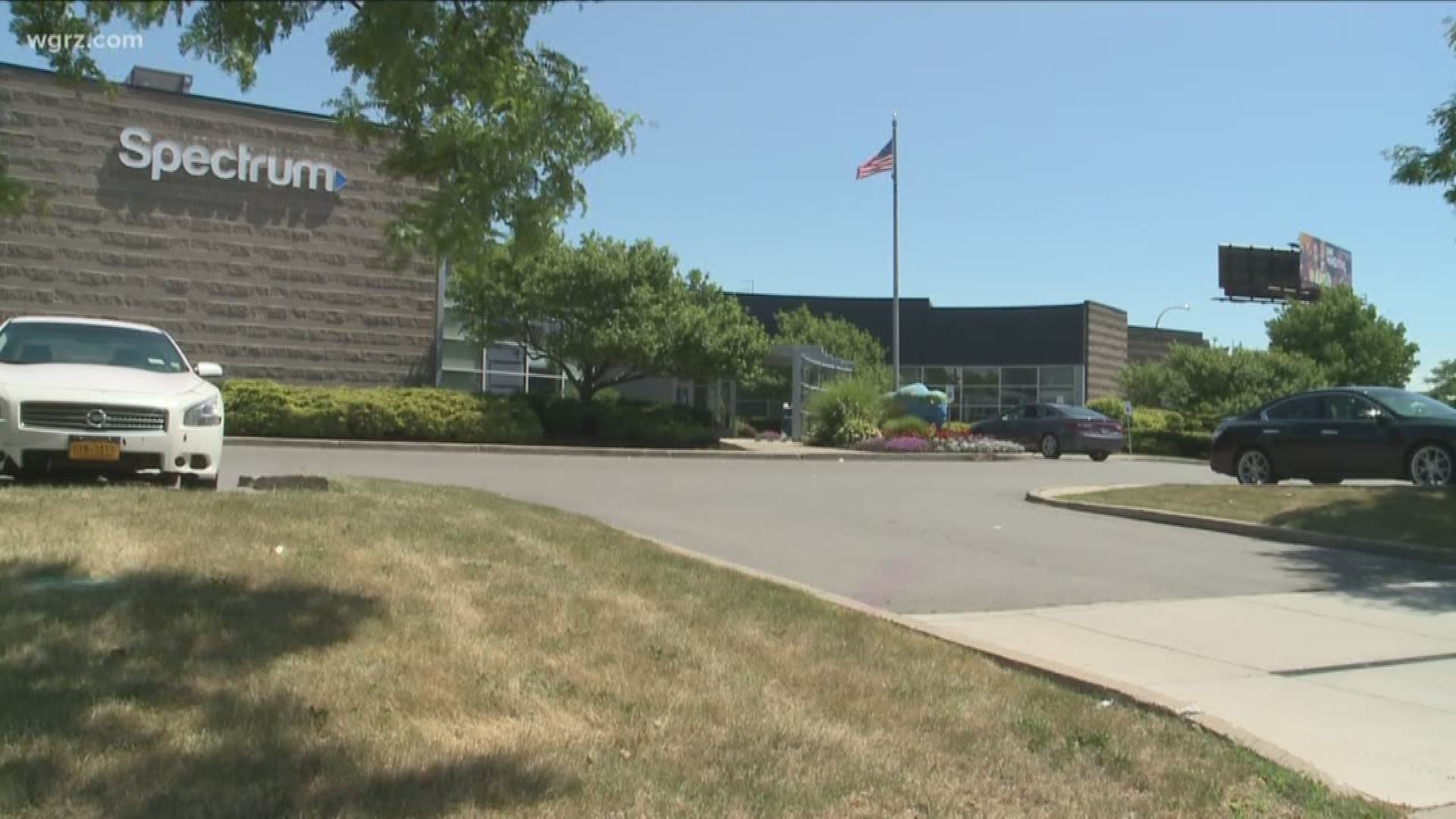ALBANY – New York's utility regulators moved Friday to revoke Charter Communication's ability to operate in the state, arguing that the state's top cable provider hasn't lived up to the terms of its 2016 merger with Time Warner Cable.
The Public Service Commission gave Charter 60 days submit a plan to hand over its New York operations to a new cable, internet and phone provider, rescinding the state's previous approval of the major cable merger.
Charter, which does business as Spectrum cable in New York, has been locked in a battle with Gov. Andrew Cuomo's administration over the rollout of high-speed internet access in rural areas of the state.
On Friday, the commission escalated that battle by revoking its approval of the 2016 Charter-Time Warner Cable merger, which would prevent the company from operating in New York and will likely launch a prolonged court battle.
The commission approved the decision unanimously at a hastily called meeting Friday, along with a civil lawsuit hoping to bring additional financial penalties against the company.
PSC Chairman John Rhodes said Charter is "simply not serving New Yorkers."
"We need to seek a different provider," Rhodes said before voting in favor of the measures.
What's next?
In a statement, a Charter spokesman did not say what steps the company may take to try and block the order.
The Public Service Commission's order requires the company to maintain its service throughout the state while planning for a transition to a new company.
Charter is the state's largest cable provider, offering television, internet and phone services in more than 1,150 communities across New York with a potential customer base of 5 million, according to the Public Service Commission.
The cable provider and the state are at odds over the rate at which the company has rolled out high-speed internet in less-densely populated areas of the state, which was a key provision in the state commission's approval of the $55 billion Time Warner Cable merger in 2016.
As part of the approval, Charter was required to extend its broadband network to 145,000 new homes and businesses in more rural areas of the state while hitting certain benchmarks along the way.
The state commission says Charter has repeatedly missed its six-months benchmarks, including a June 2018 deadline to hit 58,417 new addresses in areas that aren't densely populated.
Charter denies that claim, however, and has said it is ahead of schedule. The company claims to have added 86,000 total homes and businesses to its broadband network across the state.
The disagreement
The disagreement comes down to which addresses should be counted.
The commission invalidated more than 18,000 addresses Charter was counting toward the total number, with most of those being New York City addresses the commission says hardly count as "less-densely populated" areas.
Charter also counted some addresses in other densely populated cities like Rochester and Mount Vernon, the state claims.
In a statement, Charter spokesman Andrew Russell suggested the commission's actions were being politically motivated but did reveal what the company's next step would be.
Cuomo is up for re-election this year.
"In the weeks leading up to an election, rhetoric often becomes politically charged," Russell said. "But the fact is that Spectrum has extended the reach of our advanced broadband network to more than 86,000 New York homes and businesses since our merger agreement with the PSC."
Russell continued: "Our 11,000 diverse and locally based workers, who serve millions of customers in the state every day, remain focused on delivering faster and better broadband to more New Yorkers, as we promised."
New fines?
The Public Service Commission had previously fined Charter $2 million for failing to meet the broadband deadlines and voted Friday to force the company to forfeit $1 million in credit that was approved as part of the merger.
The commission also approved a lawsuit to seek additional penalties from the company, particularly greater fines.
The orders were approved by a 4-0 vote of the commission.
James Alesi, a former state senator from the Rochester area who sits on the commission, characterized the orders as difficult but necessary steps.
"It's actually sad for me to say that I can endorse this and I will be supporting it," Alesi said. "We never like to see such strong action taken against a business, but in the case of a business that is not doing what it says it is going to do, it's not just hollow promises working to the detriment of the people."

